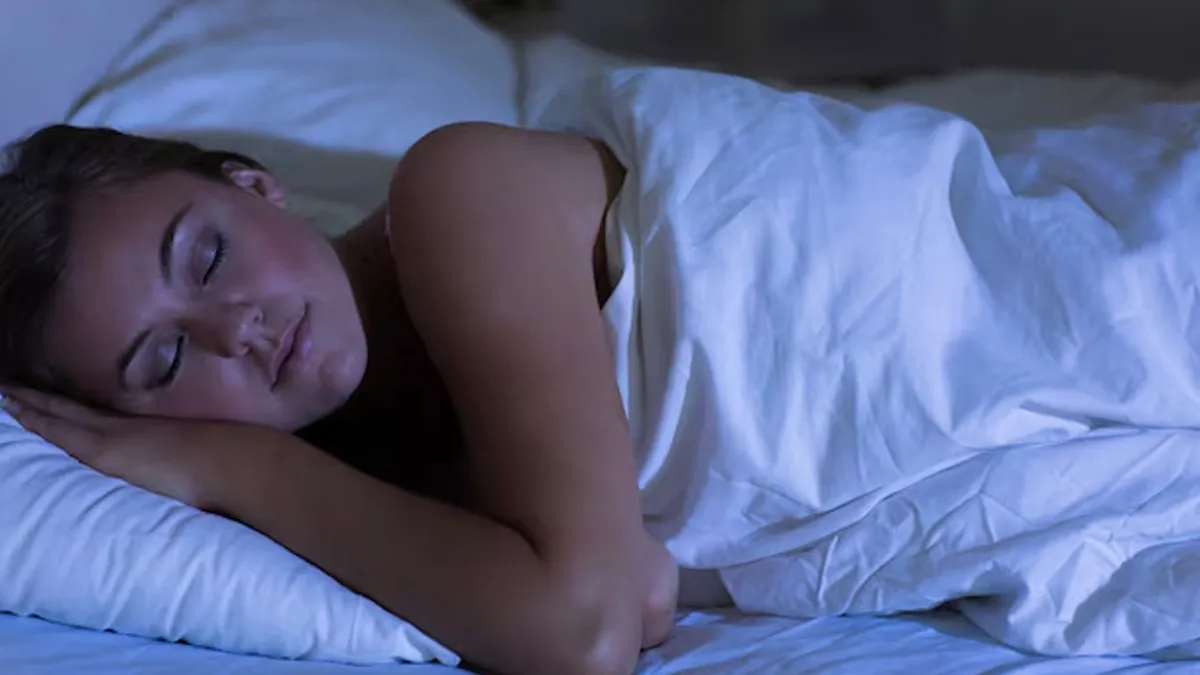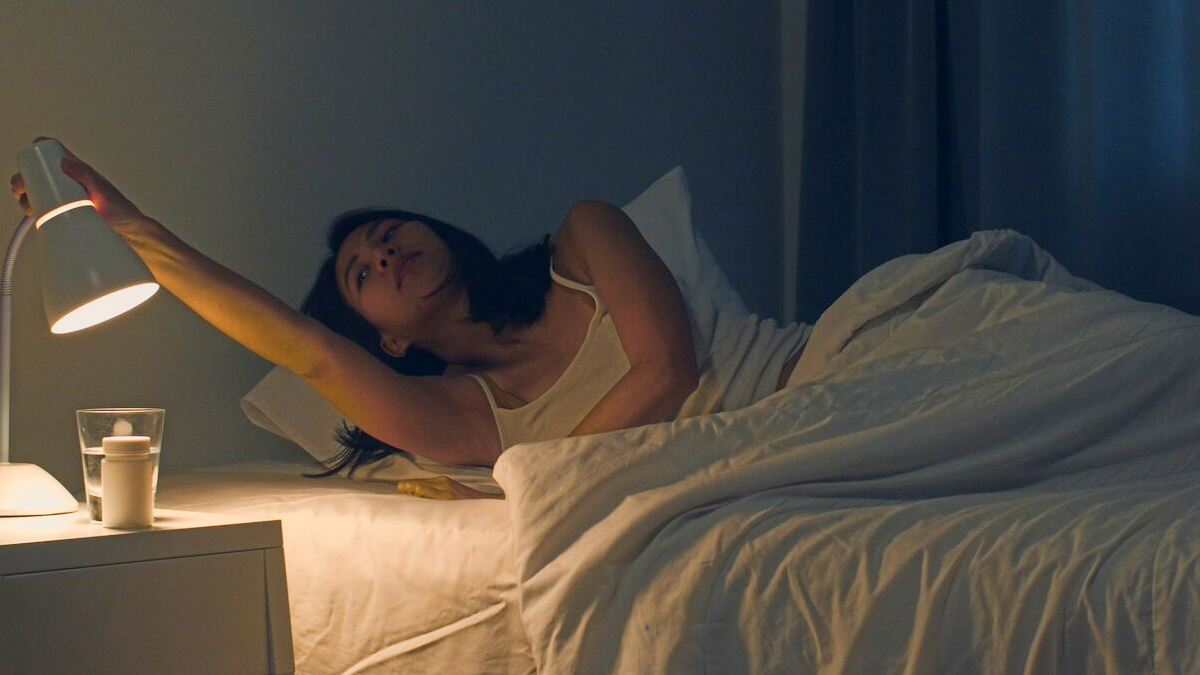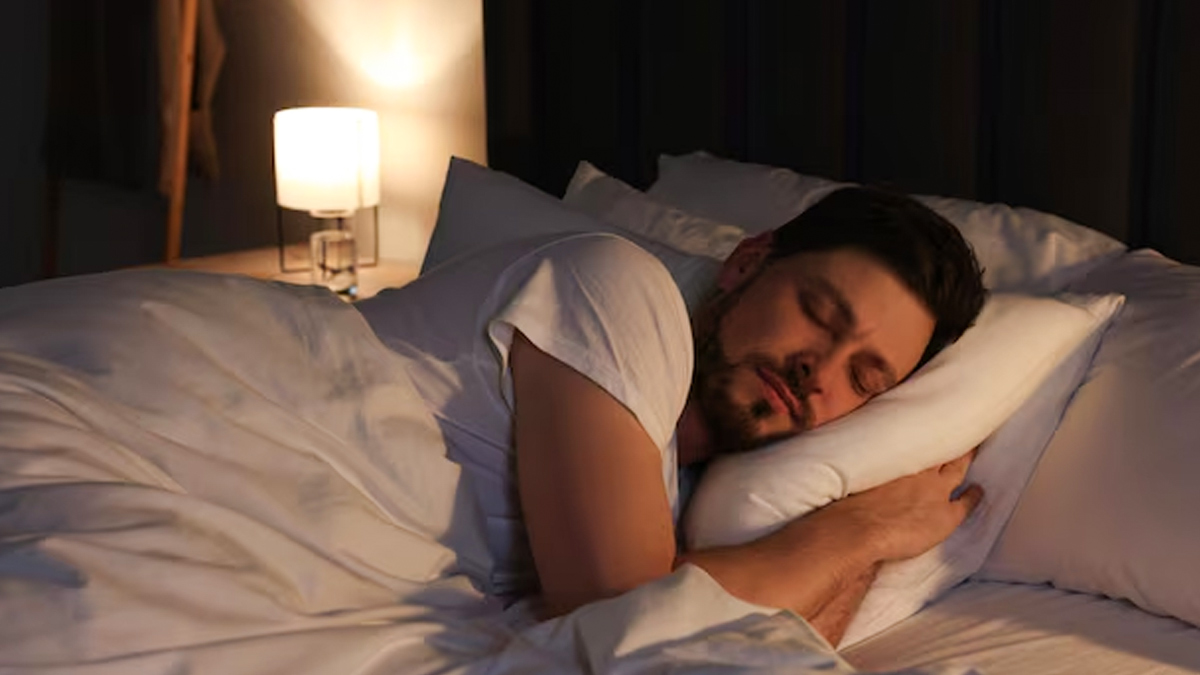
If you find it difficult to sleep in a completely dark room, you might want to give it another thought as it not only helps you feel fresh the next morning but also benefits your overall physical and mental health. Many believe that sleeping in pitch darkness improves sleep quality, eventually supporting heart health reducing the risk of cardiovascular diseases.
Table of Content:-
With the sleep environment becoming an increasingly discussed topic around the younger generation, we reached out to Dr Basavaraj S Kumbar, Consultant - Internal medicine, Aster Whitefield Hospital, Bengaluru, to understand how light exposure during sleep links to heart health and why sleeping in a dark room can make a difference.
Connection Between Light Exposure During Sleep and Heart Health
According to a recent study published in JAMA Network, avoiding exposure to night light may lower the risk of cardiovascular diseases. The research also highlights that brighter night-time light has been cross-sectionally associated with atherosclerosis, obesity, hypertension, and diabetes in well-characterised cohorts.
Dr Basavaraj S Kumbar tells Onlymyhealth, “Light at night, whether from the street lamps, the bedside lamps, or electronic devices, energises the body's sympathetic nervous system, the fight or flight response, which unceasingly increases the heart rate and blood pressure.”
He further mentioned that this continuous and subtle stimulation over a long period may lead to a range of health problems, including high blood pressure, insulin resistance, and inflammation, all of which are the major cause of heart diseases.
Also Read: Can Good Sleep Help Delay Cognitive Decline in The Elderly? Expert Shares Tips
Link Between Sleeping in Complete Darkness and Sleep-Wake Cycle
The body operates on an internal clock called the circadian rhythm which is responsible for the sleep-wake cycle, hormone release, and the metabolic process. According to a 2022 study published in the Proceedings of the National Academy of Sciences (PNAS), even the ambient night-time light exposure is implicated as a risk factor for adverse health outcomes, including cardiometabolic disease.
Dr Kumbar explains, “The absence of light gives the brain the green signal to produce melatonin, the hormone responsible for a relaxed sleep and also regulating circadian rhythm. Even a very small amount of light at night, such as a glowing alarm clock or a phone screen, is enough to impede the secretion of melatonin and send a wrong signal to the body's internal clock.“
When you are sleeping in absolute darkness, the biological rhythm stays intact, enabling the body to have good sleep, balanced metabolism, and a healthy cardiovascular system.
How Light Exposure During Sleep Affects Overall Health?
When the light is on, melatonin production decreases while cortisol, the stress hormone, increases. Dr Kumbar emphasises how even the minimal light exposure can put the heart at risk: “Cortisol, when raised during sleep or rest time, adversely affects glucose regulation, causes inflammation, and interrupts blood pressure levels. The continuous interference with the hormonal cycles not only puts the heart at risk but can also lead to obesity, diabetes, mood swings, and poor immune system.”
“Healthy sleep habits, along with less exposure to light at night, may lower the risk of premature death caused by cardiovascular or metabolic disorders,” he adds.
Another research, published in Sleep Health showed that adults who were exposed even to low light while sleeping were likely to develop obesity, diabetes, and hypertension, the three leading causes of early cardiovascular death.
Also Read: Do Women Need More Sleep Than Men? Expert Settles The Debate!
Tips For Better Sleep Hygiene
Considering the health benefits of sleeping in complete dark room, Dr Kumbar shares the following tips for better sleep hygiene:
- Make your room dark, cool, and quiet: Use blackout curtains or wear blackout masks to block all unnecessary light, and keep a comfortable room temperature.
- No screentime before bed: The blue light from mobile phones and laptops hinders the production of melatonin. Try to stop using electronic devices at least 60 minutes before sleep.
- Plan a sleep routine: Changing sleep time every day disturbs your internal clock. Plan your sleep and wake up time helps regulate the body clock naturally.
- Limit caffeine and heavy meals before sleep: Consuming caffeine and heavy food before the sleep time causes difficulty in sleep and leads to fragmented sleep.
- Practice relaxation techniques: Deep breathing, meditation, or reading under dim lighting can calm the body and prepare it for sleep.
- Use red light: To transition from light to complete dark room while sleeping one can proceed by replacing their light with a very dim red one, because red light has the least effect on melatonin.
- Eliminate hidden lights: Eliminating or hiding the sources of distant light such as Wi-Fi routers, alarm clocks, and battery indicators also helps in good sleep.
Bottomline
Quality sleep has always been linked to overall health, particularly heart health. Sleeping in a dark room is the safest way to allow the heart and arteries to rest and recover after a long day. The transition from light to total darkness can be slow and easy, yet powerful and eventually reduce the risk of cardiovascular health.
Also watch this video
FAQ
Is It Good To Sleep With No Light?
Sleeping with no light or in complete darkness is considered good for mental and physical health.Is it healthy to sleep in complete darkness?
Yes, sleeping in complete darkness improves sleep quality eventually reducing the risk of cardiovascular diseases.
How we keep this article up to date:
We work with experts and keep a close eye on the latest in health and wellness. Whenever there is a new research or helpful information, we update our articles with accurate and useful advice.
Current Version
Nov 09, 2025 20:28 IST
Published By : Chanchal Sengar
